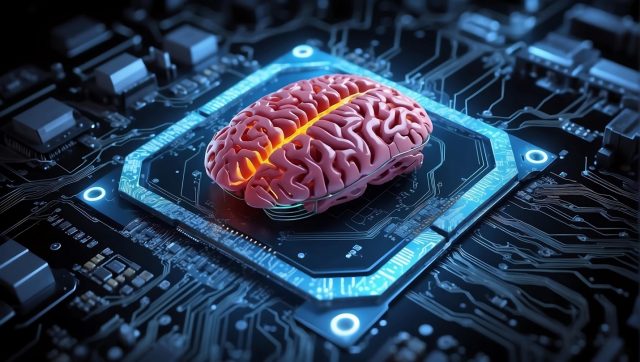Philly Flair: Joining us today is Dr. William Taggart MD, a child, adolescent and adult psychiatrist from Richmond, Virginia. Thank you for joining us today, Dr. Taggart. With the rapid advancement of technology, there are growing concerns about how it impacts our mental health. Could you start by sharing some positive effects technology can have on mental health?
Dr. William Taggart MD: Thank you for having me. Indeed, technology has significantly influenced mental health, often in positive ways. One of the most notable benefits is the increased accessibility to mental health resources. Telepsychiatry and online therapy platforms have made it possible for people, especially those in remote or underserved areas, to receive professional help. Additionally, mental health apps offer tools for managing stress, anxiety, and depression, providing users with techniques such as mindfulness and cognitive-behavioral therapy exercises.
Philly Flair: Those are certainly important advancements. However, there are also concerns about the negative effects of technology. Could you elaborate on some of these?
Dr. William Taggart MD: Absolutely. While technology has its benefits, it also poses several risks to mental health. One of the primary concerns is the impact of social media. Excessive use of social media can lead to feelings of inadequacy, anxiety, and depression due to the constant – and often unrealistic — comparisons with others. Furthermore, the internet can expose individuals, particularly adolescents, to cyberbullying, which has been linked to severe emotional distress and even suicidal ideation.
Philly Flair: That’s quite concerning. How does screen time in general affect mental health?
Dr. William Taggart MD: Prolonged screen time, especially without breaks, can contribute to several mental health issues. It can disrupt sleep patterns, as exposure to blue light from screens interferes with the natural sleep-wake cycle. Poor sleep quality is closely linked to mood disorders, including depression and anxiety. Moreover, excessive screen time can reduce physical activity, which is essential for maintaining many important aspects of mental well-being. The lack of face-to-face social interactions due to increased screen time can also lead to feelings of loneliness and social isolation.
Philly Flair: Given these potential drawbacks, how can individuals find a healthy balance in their use of technology?
Dr. William Taggart MD: Finding a healthy balance is crucial. Here are a few strategies:
- Set Boundaries: Allocate specific times for technology use and ensure you have tech-free times, especially before bed.
- Practice Mindfulness: Be conscious of how you feel when using technology and take breaks when needed.
- Engage in Physical Activity: Ensure you have regular physical exercise to counteract the sedentary nature of screen time.
- Limit Social Media Use: Consider setting limits on social media use and focus on connecting with people in real life.
- Prioritize Sleep: Avoid screens at least an hour before bedtime to improve sleep quality.
Philly Flair: Those are practical tips. Do you have any advice for parents concerned about their children’s use of technology?
Dr. William Taggart MD: Yes, it’s important for parents to be proactive. They should encourage healthy habits by setting a good example with their own tech use. Implementing screen time limits and ensuring that children engage in diverse activities, including outdoor play and face-to-face interactions, is vital. Open communication is also key; discussing the potential risks and benefits of technology with children can help them make more informed decisions. Lastly, using parental controls to monitor and limit content can help protect children from inappropriate material and cyberbullying.
Philly Flair: What about the role of schools and educators in this context? How can they contribute to healthier tech usage?
Dr. William Taggart MD: Schools and educators play a crucial role. They can incorporate digital literacy into the curriculum, teaching students about the responsible use of technology and the potential mental health impacts. Schools can also promote a balanced approach by encouraging physical activities and social interactions alongside digital learning. Additionally, providing resources and support for students facing cyberbullying or other online issues is essential.
Philly Flair: Considering the workplace, how does technology affect mental health in professional settings?
Dr. William Taggart MD: In professional settings, technology can be both a boon and a challenge. On the positive side, it facilitates remote work, offering flexibility that can improve work-life balance. However, it can also lead to blurred boundaries between work and personal life, increasing stress and burnout. Constant connectivity and the pressure to be always available can exacerbate anxiety. Employers should encourage healthy tech use by promoting regular breaks, setting clear boundaries for work hours, and fostering a culture that values mental health.
Philly Flair: Thank you, Dr. Taggart. Is there anything else you’d like to add about the intersection of technology and mental health?
Dr. William Taggart MD: I’d like to emphasize that while technology can pose challenges, it also offers immense potential for improving mental health care. The key is to use it mindfully and responsibly. By leveraging the positive aspects and mitigating the negatives, I believe we can harness technology to support and enhance our mental well-being.
Philly Flair: Thank you so much for your insights, Dr. Taggart. It’s been a pleasure having you. Again, Dr. Taggart is a psychiatrist in clinical practice in the Richmond, Virginia area with over 20 years of experience in the fields of child psychiatry and adult psychiatry. I hope our audience has found Dr. Taggart’s insights as enlightening as I have.
Dr. William Taggart MD: Thank you for having me. It’s been a great discussion.









